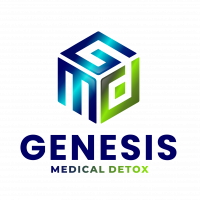
Librium addiction has become a pervasive problem in Tennessee. This prevalent issue is causing significant harm to individuals and families across the state. Librium, a commonly prescribed medication for anxiety disorders, has unfortunately led to addiction problems for many Tennesseans. This essay will delve into the detrimental effects of Librium addiction in Tennessee and emphasize the urgent need for increased awareness and support for those struggling with this issue.
Librium addiction in Tennessee has reached alarming levels, with many individuals becoming dependent on this medication to cope with their anxiety. The addictive nature of Librium can quickly lead to a substance use disorder, disrupting the lives of those affected. For example, some may start using Librium to manage their stress but soon found themselves unable to function without it. Their addictions lead to strained relationships and financial difficulties, illustrating the destructive impact of Librium addiction on individuals and their loved ones.
Moreover, the lack of awareness and resources for Librium addiction in Tennessee exacerbates the problem. Many people struggling with this issue do not know where to turn for help, leading to a cycle of addiction and despair. Without proper support systems in place, individuals find it challenging to break free from the grips of Librium addiction. This highlights the importance of increasing education and access to treatment options for those battling substance abuse in the state.
What is Librium and Where did it Come From?
Librium is a prescription medication that belongs to a class of drugs known as benzodiazepines. It is commonly used to treat anxiety disorders, alcohol withdrawal symptoms, and muscle spasms. Librium works by enhancing the effects of a neurotransmitter in the brain called gamma-aminobutyric acid (GABA), which helps to calm the central nervous system.
Librium was first synthesized in the 1950s by the pharmaceutical company Hoffmann-La Roche. It was introduced as an anti-anxiety medication in the United States in 1960 and quickly gained popularity for its effectiveness in managing anxiety and related conditions. However, due to its potential for abuse and addiction, Librium is now prescribed with caution and monitored closely by healthcare providers.
Despite its therapeutic benefits, the addictive nature of Librium has led to widespread misuse and dependence among individuals, particularly in states like Tennessee. It is crucial for healthcare professionals and communities to be aware of the risks associated with Librium use and to provide support and resources for those struggling with addiction to this medication.
How Does Librium Affect the Brain?
Librium affects the brain by interacting with neurotransmitters, specifically gamma-aminobutyric acid (GABA). GABA is a neurotransmitter that inhibits or reduces the activity of nerve cells in the brain, leading to a calming effect. When a person takes Librium, the drug enhances the effects of GABA, resulting in increased feelings of relaxation and reduced anxiety.
By boosting GABA activity, Librium helps to slow down the central nervous system, which can be beneficial for individuals struggling with anxiety disorders. However, prolonged use of Librium can lead to tolerance, dependence, and addiction. Over time, the brain may become reliant on the drug to maintain normal function, making it challenging for individuals to stop using Librium without experiencing withdrawal symptoms.
It is essential for individuals prescribed Librium to follow their healthcare provider’s guidance closely and to use the medication only as directed. Understanding how Librium affects the brain can help individuals make informed decisions about their treatment and seek support if they experience any concerning side effects or signs of dependence.
Detox From Librium
Detoxing from Librium can be a challenging process, especially for individuals who have developed a dependence on the medication. When someone decides to stop taking Librium, they may experience withdrawal symptoms as their body adjusts to the absence of the drug. It is crucial for individuals undergoing Librium detox to do so under the supervision of a healthcare provider to ensure their safety and well-being.
Common withdrawal symptoms from Librium may include anxiety, insomnia, tremors, sweating, and increased heart rate. In severe cases, individuals may experience seizures or hallucinations. Healthcare providers may recommend tapering off the medication gradually to reduce the intensity of withdrawal symptoms and minimize the risk of complications.
During the detox process, healthcare professionals may also provide supportive care, such as monitoring vital signs, addressing any medical concerns, and offering counseling or therapy to help individuals cope with the emotional aspects of withdrawal. It is essential for individuals detoxing from Librium to have a strong support system in place and to follow their healthcare provider’s recommendations closely to ensure a safe and successful detox process.
In Conclusion
In conclusion, Librium addiction poses a significant threat to the well-being of individuals in Tennessee. There are countless stories of the devastating effects of this addiction and the urgent need for intervention. By raising awareness, providing support, and expanding resources for individuals struggling with Librium addiction, we can work towards a healthier and more resilient community.
If you or someone you know is struggling with a chemical dependency issue reach out to Genesis Medical Detox or Magnolia Ranch Recovery today and get started on the path to long-term recovery.








